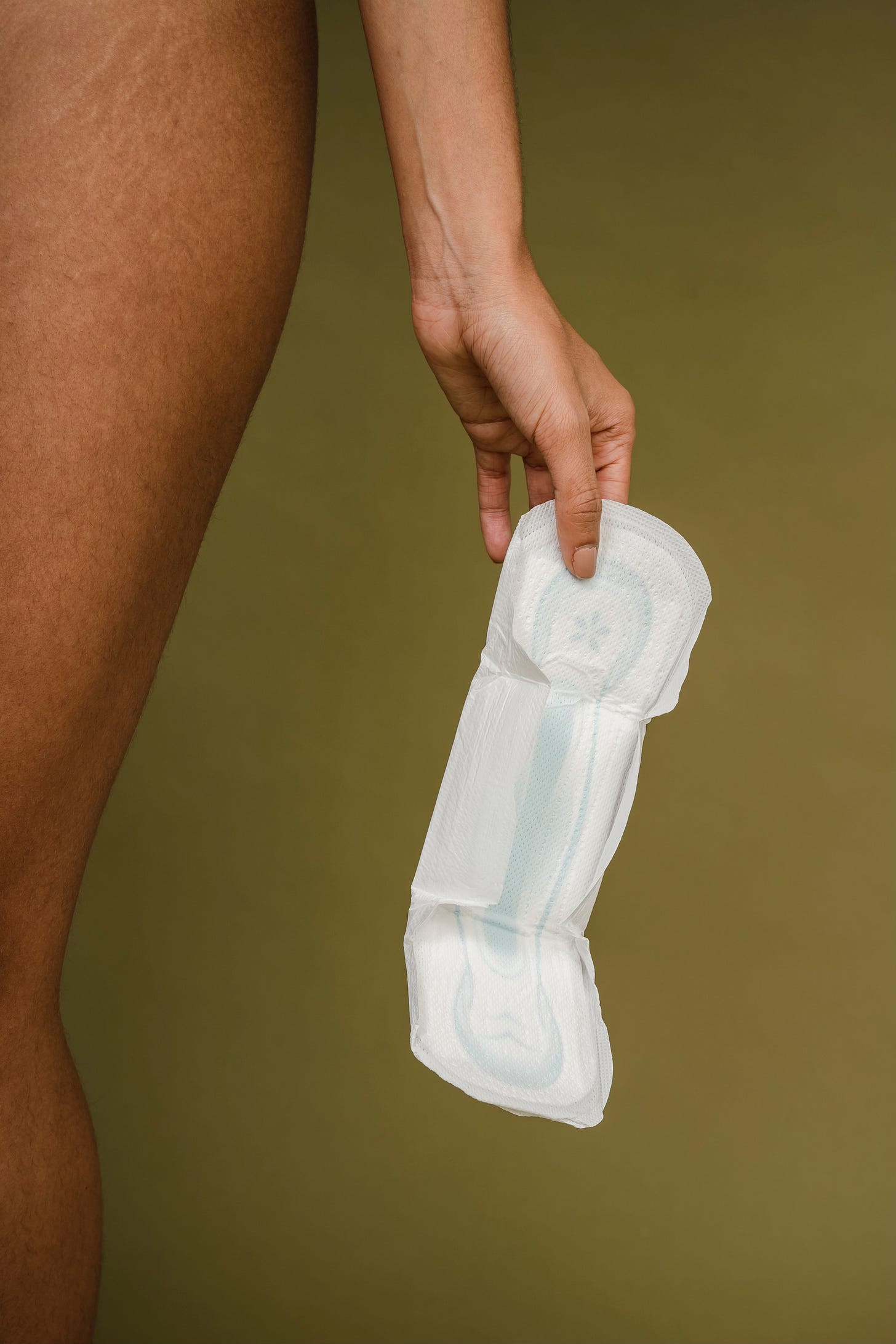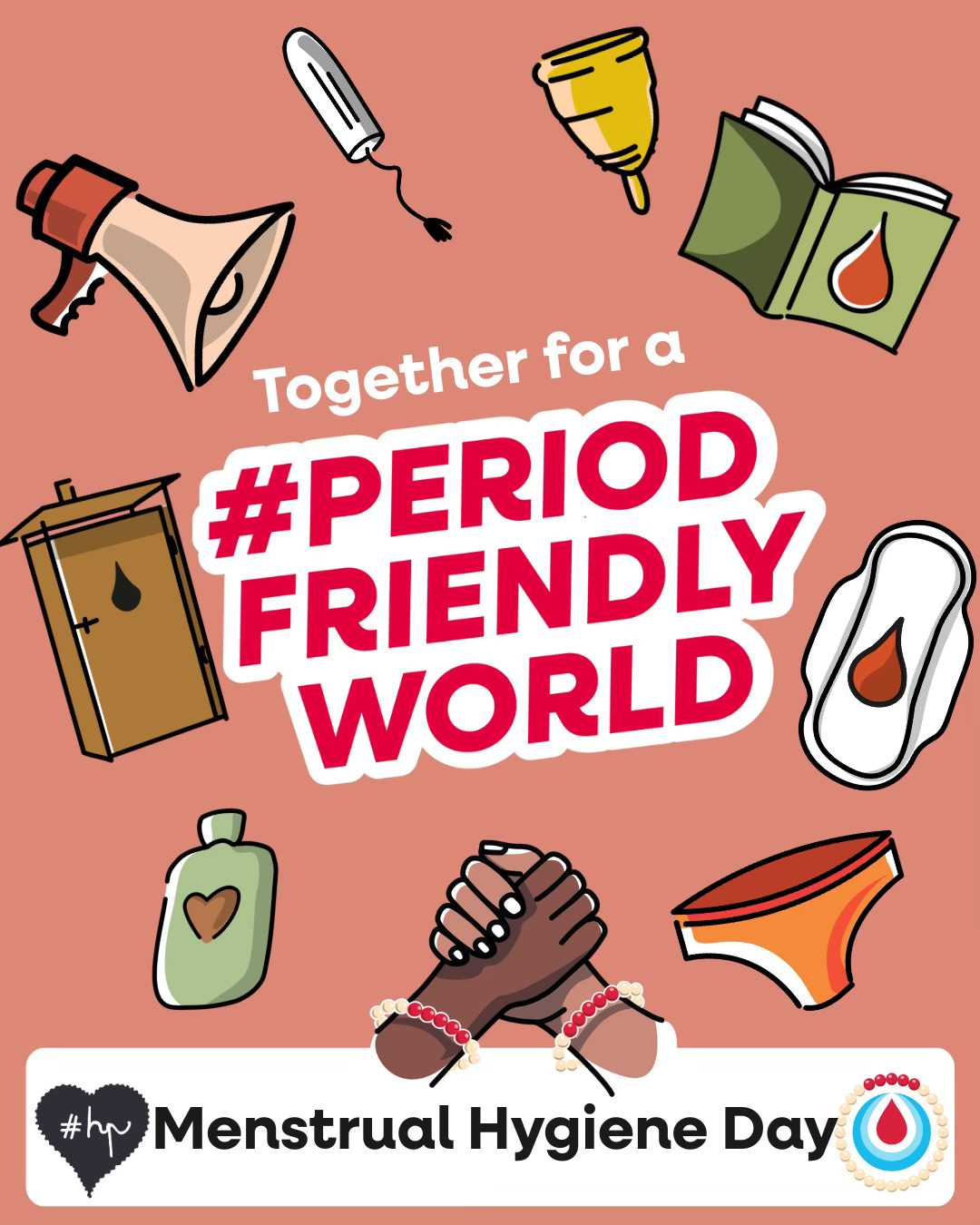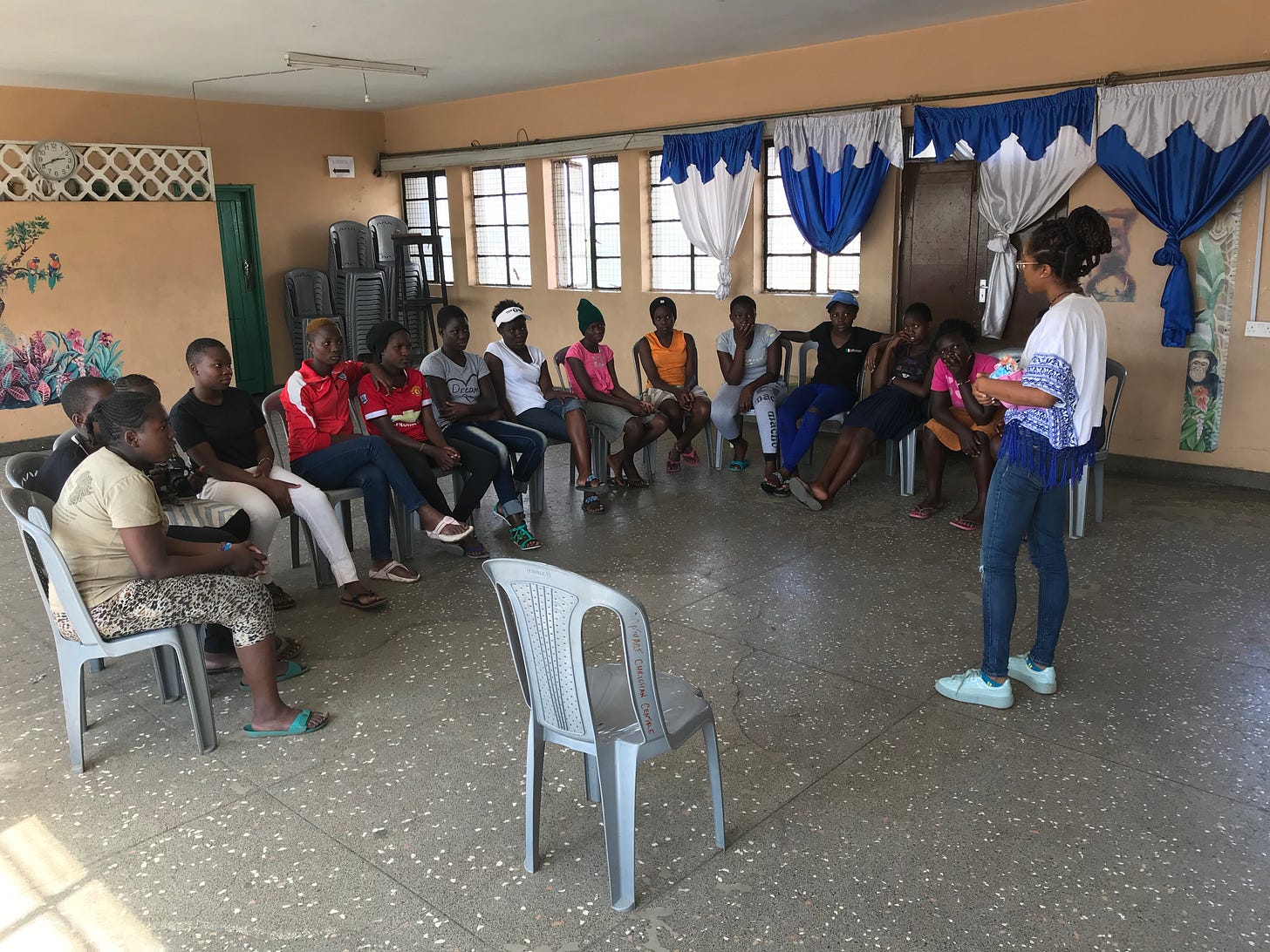May 28th is Menstrual Hygiene Day. But WTF is it Really?!
How I feel about this global awareness day after 10 years working in the nonprofit sector.
Menstrual Hygiene Day is a global day of action and awareness that shines a light on the importance of menstrual health, education, and dignity. It was initiated by a German NGO, called WASH United. Think of it as a global day dedicated to menstruation, to eliminate the taboo and stigma surrounding it. I’ve participated in campaigns over the last ten years, since I founded my own organization. Besides participating in the social campaign, my group would host events and volunteer opportunities with other local charities and individuals. For years I looked forward to participating, as I felt like WASH United did amazing work, and still do!
2015-2018 was a fun time for periods! I mean anybody involved in the menstrual equity space through a charity, or brand, thought it was a cool time to be a part of the new wave of feminists bringing menstruation to the forefront. The Future is Female. That was a common statement blasted across social media posts, t-shirts, and enamel pins. But here’s what doesn’t get said enough: the menstrual equity space continues to underfund and overlook Black-led organizations — especially those on the frontlines of serving communities most impacted by period poverty. For me it was fun and cute in the beginning of the movement because I was carving out something I knew was special, and I always had little Black and Brown girls as the focus for their future. Folks expressed how excited they were for me and #HappyPeriod, brands were more collaborative and desperate for social impact points. The performative activism and allyships kicked in heavy around that time. And then I don’t know, sometime before or during the pandemic, it switched.
Something clicked and lit a fire inside of me. It had been clicking for awhile. I went to Nairobi, Kenya back in 2017, and I became aware that a popular NGO was not giving girls in need free pads as they advertised they were, but charging a local organization for pads and menstrual cups. When I visited to give a workshop, the girls showed me where they stock the boxes of menstrual cups. A dozen boxes. The girls didn’t want them. They wanted disposable pads and period underwear. But, that’s not what the NGO offered to them. The Kibera rep told me the NGO rep insisted the girls would benefit from menstrual cups. Chile, I was appalled. I found out that NGO rep was white and volunteered under “missionary” work. There was no consideration of their culture, their lifestyle, their parent’s wishes, their environment, or even their personally access to running water. When environmentalists scream about how everyone should be using menstrual cups, they rarely consider everyone else situation when it comes to access. Access to clean, running water. Access to a private toilet. Access to a public restroom.
Too many people in the menstrual equity space reek white privilege and white supremacist ideologies, and don’t even understand how they project unto others, they deem as less fortunate than them. Anyways… So every time I see that org’s logo in any of the MHD campaigns, I roll my eyes. There’s been quite a few exposures over the years, that helped me discovery that too many folks that work in philanthropy are anti-Black, bias, and desperately try to hide behind their performative activism. I see too many white-led organizations leading the space, without properly serving the people. I also see too many times them receiving praises for their work, yet they don’t have any Black folks in PAID leadership roles. Also they rarely highlight the people that are most impacted by the issue. I’ve just seen through too much bullshit.
Shoutout to all of the NGOs in India too, because baaaybeeee they’ve been holding it down since day one!! Their inequities are unique to them, rooted in cultural ideologies, however their progress is promising and so inspiring! Their leaders know how to take care of their own, and be unapologetic about it. Orgs like Goonj, Menstrupedia, and Boondh are all doing amazing work, and have been for some time. Let me shout out some of my favorite Indian and Black-led organizations of the menstrual equity space:
Goonj – Not Just a Piece of Cloth
Reusing cloth to create affordable pads while driving menstrual education in rural India.
🌐 https://goonj.org
Menstrupedia
Creators of India’s first comic for menstrual education, changing the way youth learn about periods.
Love Your Menses (USA)
Founder: Dr. Yaminah McKessey
A youth-centered platform promoting menstrual wellness for Black and Brown girls.
Boondh
A social enterprise advocating sustainable menstruation through menstrual cups and gender-inclusive education.
The Spot.period (USA)
The nation’s first menstrual hub and uterine wellness center by No More Secrets Mind Body Spirit Inc.
Menstrual Hygiene Day hits different when you’ve lived the experience — whether in Lagos, Lucknow, or Louisiana.
For Black girls and women across the globe, it’s more than a hashtag. It’s a reminder that we deserve access, dignity, and products that won’t harm our bodies. It’s the auntie in Ghana who wraps pads in fabric out of privacy. It’s the teen in Detroit who skips school during her cycle. It’s the woman in South Africa building community workshops with what little funding she has. Shoutout to all of the NGOs in India too because baaaybeeee they know how to take care of their own. They hold it down, when it comes to their narratives, their impact, and progress.
From the village to the block, we’ve always made a way.
Menstrual Hygiene Day empowers us by amplifying our stories, normalizing the convo, and reminding the world: we’ve got womb wisdom and world-shifting power.
But don’t get it twisted — awareness is step one. Equity is the goal.





